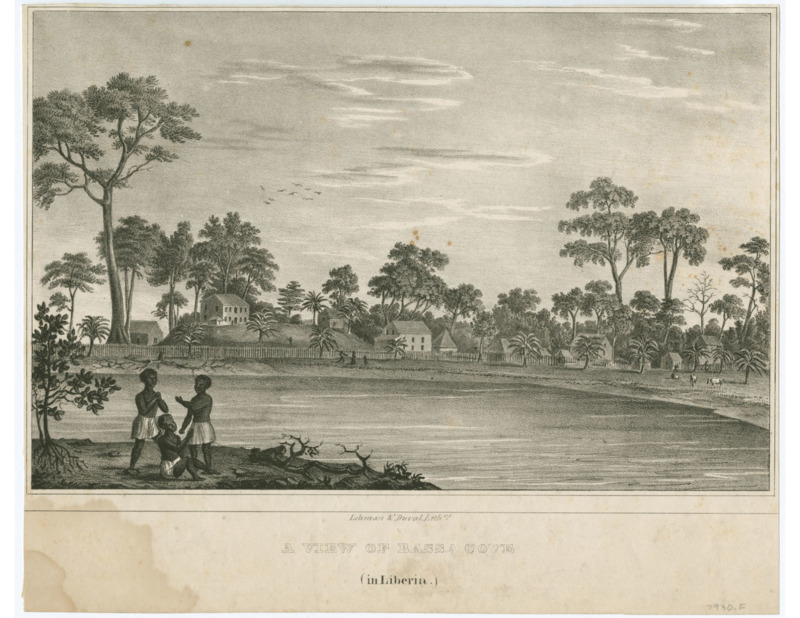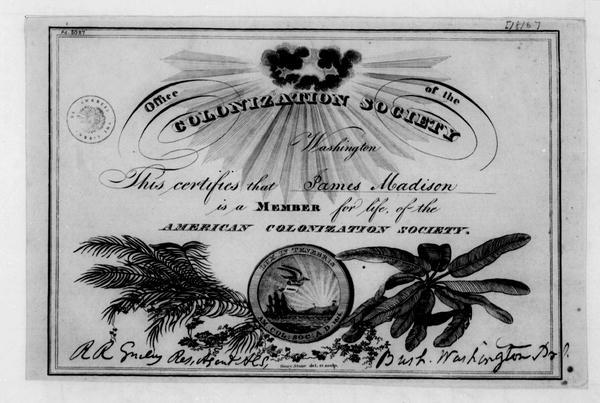Walker's Condemnation of Colonization

A view of Bassa Cove (in Liberia.) [graphic]
View "from a drawing made on the spot by Dr. Robert McDowall" of a village scene in Liberia, the African American colony established by the American Colonization Society in 1822.
“Tell us no more about colonization for America is as much our country, as it is yours.”
David Walker, Walker’s Appeal in Four Articles
While galvanizing blacks to be accountable for their own freedom, Walker passionately argued against moderate, gradualist approaches intended by whites to accommodate and sustain the dependency of the enslaved. One such scheme involved the resettlement of freed African Americans outside of the United States.
The American Colonization Society, formed to establish a colony of free blacks on Africa’s west coast, stated in a funding petition to Congress, “The least observation shows that this description of persons are not, and cannot be, either useful or happy among us; and many considerations, which need not be mentioned, prove, beyond dispute, that it is best, for all the parties interested, that there should be a separation.”[1] Many whites and some blacks supported colonization as a gradualist strategy to eradicate slavery and ease growing racial tension in the United States, believing that removal from a society intent on negating their equality provided the best opportunity for freed and enslaved blacks to fulfill their potential as human beings. Walker and other African American activists and abolitionists strongly believed the colonization movement to be inherently racist and felt equally deserving as whites to reap their own share of the American dream.
Walker justified the rights of African Americans to participate as free citizens in the America they helped to build, despite the colonization movement's attempts to alleviate white fears that as their population grew in number, free blacks would fail to assimilate with whites and foment slave insurrections. Walker's Appeal, Bruce Dain tells us, stoked Northern fears of a brewing black insurgence in the southern states.[2] In his Appeal, Walker demanded that whites view America’s black population in parallel with the early American colonists, who rose up against their oppressors and won their freedom, writing, “see your Declaration, Americans!! Do you understand your own language?”[3] Walker’s call for blacks to violently resist slavery, in a similar manner to America’s hard-fought war for independence from Britain, foretold a painful reckoning between black suffering in bondage and white hypocrisy.
